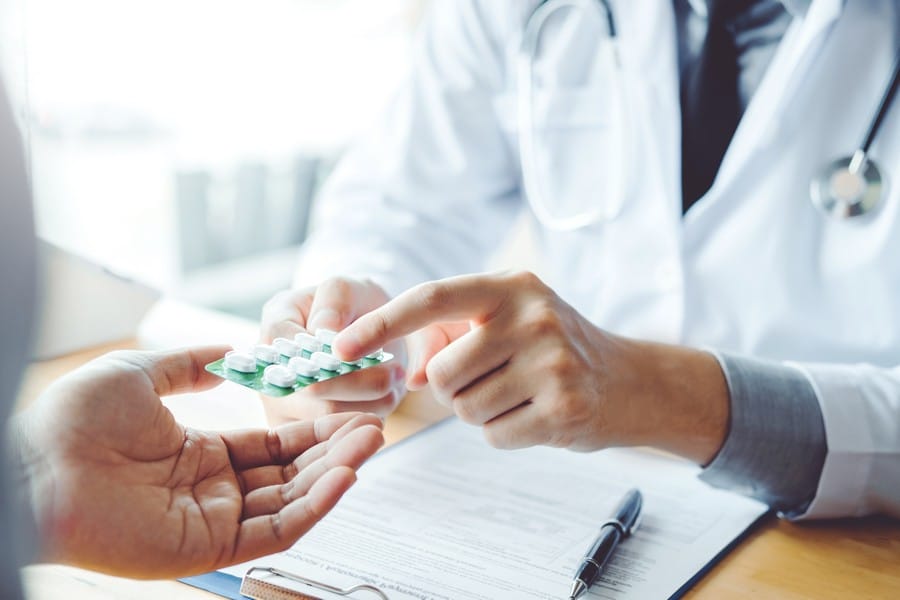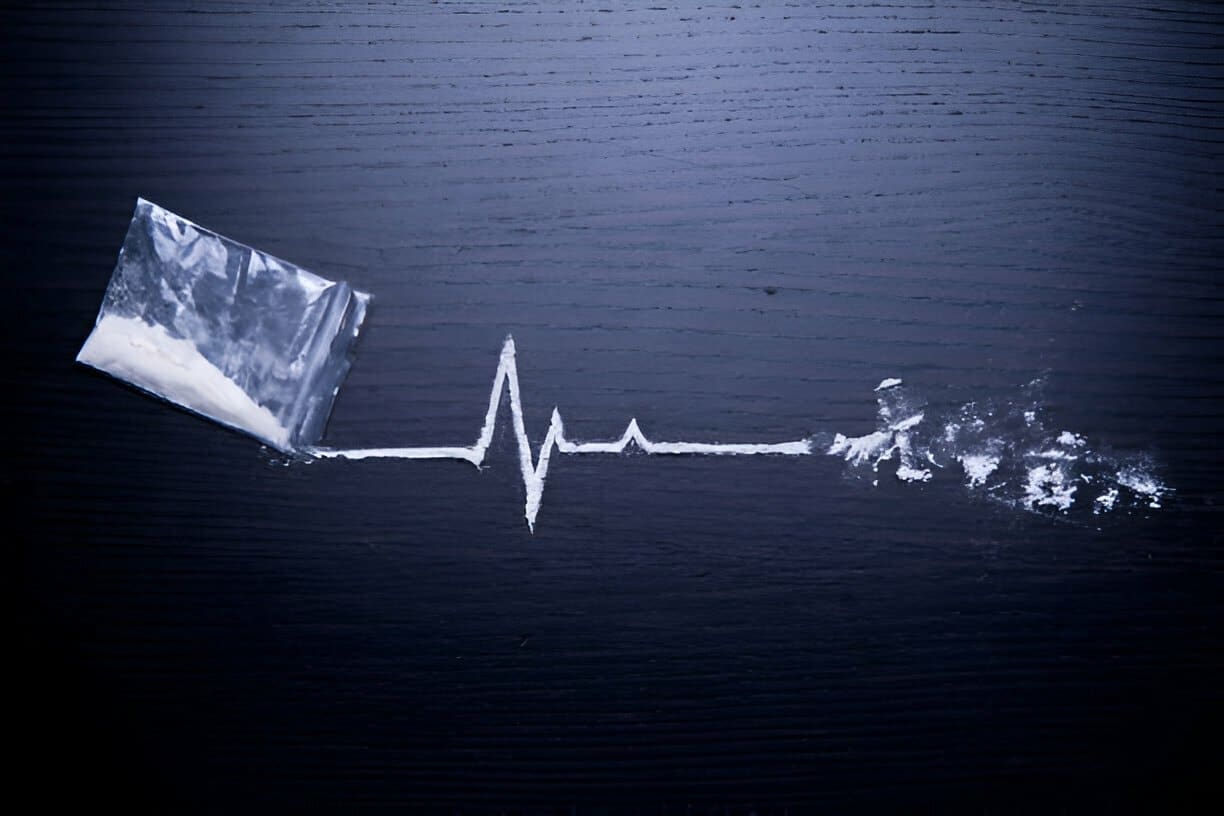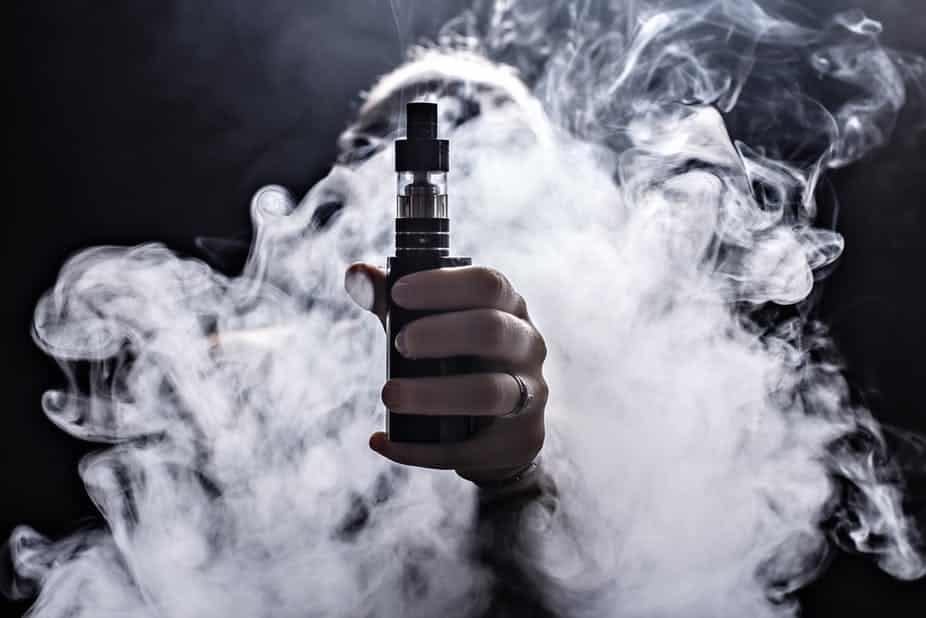Prescription drugs are often powerful medications that must be used with caution to avoid unpleasant side effects. This is why obtaining and using such drugs legally requires a prescription from your doctor. A doctor will assess the risks and advantages of prescribing you medicine before deciding whether or not you should take it. Abusing prescription medication is considered to be just as harmful as using illegal substances.

The potential of developing a physical dependence or addiction to the medicine in question is one of the most serious consequences of taking prescription drugs. Sedatives, stimulants, opioids, and benzodiazepines are among the prescription drugs with the highest risk of addiction. While not all prescription meds are addictive, you should never use them for anything other than your doctor’s prescription. Otherwise, you risk harming your physical and emotional health, and in the worst-case scenario, you could die.
When prescription medication is combined with alcohol or other drugs to improve its effects, the addiction risk is considerably higher. Prescription medications are the third most widely abused drug form worldwide.
If your loved one needs support dealing with an Alcohol Addiction, contact us today on 0800 999 1083. We can help you by recommending treatment options.
A range of commonly abused prescription medications is described using slang words. On the street, opioids are frequently referred to as happy pills, oxy, percs, and vikes. Barbs, downers, sweets, reds, tranks, yellow jackets, and zombie pills are all names for antidepressants. Stimulants are also referred to as bennies, speed, or uppers.
Misusing prescription drugs can cause discomfort, lasting harm, addiction, and even death due to the massive diversity of substances involved. When you get dependent on a prescription drug (which can happen very fast with some prescription drugs), you lose control over how much and how often you take it. This can lead to your addiction worsening over time and increasingly negatively influencing your health, wellbeing, and quality of life.
Pain medications (painkillers) can produce a brief euphoria but can also be addictive. Depending on the type of painkiller misused, the effects and risk of addiction vary. Opioid medicines, for example, are the most widely given and strongly influence the human body.
You’re at risk of establishing a physical dependence if you use painkillers for a lengthy period or in dosages that your doctor doesn’t prescribe. This means your body has adapted to the drug’s presence and effects. If you try to quit using the medicine abruptly after this happens, you will experience withdrawal symptoms.
Painkillers aren’t cures for pain. Instead, they mask or ignore the discomfort. Unless you’re healed of the real cause of the pain, the agony will return once the drug’s effects wear off. If you keep attempting to get rid of the pain – or simply enjoy the effects of painkillers – you’ll soon find yourself needing greater and larger doses of the substance to get the desired results. This suggests you’ve built up a tolerance to the medication and are either on the verge of becoming dependent or already are.
Prescription opioids come in a variety of forms, including:
Stimulants are prescribed to treat ADHD, narcolepsy, and obesity by doctors. Stimulants influence the degree of activity in a few different neurotransmitter systems, including norepinephrine and dopamine, which alters certain forms of brain transmission. Norepinephrine is a neurotransmitter that plays a role in physiological functions like heart rate and respiration and modulates the body’s “fight-or-flight” response. Dopamine is a neurotransmitter linked to reward, motivation, and behaviour reinforcement.
Prescription stimulants come in a variety of forms, including:
Doctors and healthcare professionals prescribe CNS depressants to treat anxiety, sleep difficulties, seizures, and muscular spasms. Sedative-hypnotic medicines like barbiturates and benzodiazepines, as well as the so-called “Z-drugs,” used to treat insomnia, are all CNS depressants. Most antidepressants work by interacting with gamma-aminobutyric acid (GABA) receptors or boosting GABA transmission. GABA is a neurotransmitter that signals the brain and body to increase inhibition and reduce excitement. As a result, anxiety can be reduced, and sleep and sedation can be improved.
Prescription antidepressants come in a variety of forms, including:
Opioids, depressants, and stimulants are examples of prescription medicines that can lead to physical dependence and addiction. Even at therapeutic doses, dependence can develop. However, when used as directed, they are all typically safe. This includes adhering to the doctor’s dosage, frequency, and duration recommendations. Additionally, the medications should be consumed or delivered in their natural state, rather than being crushed and then snorted, injected, or used in any other way. When prescription prescriptions are used with other substances or alcohol, significant side effects can occur, and in extreme cases, death can result. As a result, talking to your doctor, healthcare provider, or pharmacist about possible harmful interactions is critical.
According to research, the following factors may enhance a person’s chance of becoming addicted to prescription drugs:
Prescription drug misuse manifests itself in various ways, depending on the substance in question.

A person abusing prescription drugs will always show physical and behavioural signs and symptoms. Prescription medicines, for example, affect the brain’s structure over time, making it difficult for the addict to make rational judgments.
People who abuse prescription medications get the general following symptoms:
Depending on the drug, there can be several specific signs and symptoms:
In certain situations, physical symptoms include delayed breathing, nausea, constipation, confusion, lack of coordination, and drowsiness.
Sleepiness, slurred speech, involuntary movements, issues with attention and memory, slower breathing, walking difficulties, and dizziness are some of the symptoms.
Agitation, anxiety, loss of appetite, high body temperatures, weight loss, and, in certain circumstances, seizures are signs to look for in someone abusing stimulants.
When a person’s body has acquired a physical dependence on prescription medications, they begin to experience drug withdrawal symptoms between doses.
Depending on the type of drug taken, degree of dependence, frequency of usage, and the presence of other substances misused, withdrawal symptoms may vary from person to person. They are as follows:
Depending on the drug type, the substance abuse has various possible effects.
Drug users who abuse pain medication risk respiratory depression, coma, overdose, hypotension, addiction, and an increased risk of HIV/AIDS and other blood-borne viruses.
Addiction, stroke, paranoia, seizures, hypertension, heart attack, dangerously high body temperature, cardiovascular issues, tremors, hallucinations, hostility, and violence are all common side effects of stimulant abuse.
Addiction, overdose, respiratory depression, life-threatening convulsions, and deadly withdrawal symptoms are the most typical complications of sedative abuse.
Prescription drugs are abused for the short-term pleasure they provide. Continued usage of these substances, on the other hand, poses several health risks, including:
The person begins misusing prescription medicines to get a euphoric high. Dopamine’s electrical stimulation of the brain’s reward centre causes this sensation.
Dopamine is a neurotransmitter that is responsible for pleasure and reward experiences. It aids in the promotion of essential acts such as eating when one is hungry, resulting in the development of pleasure sensations when the required behaviour is carried out.
When prescription medicines, alcohol, and other mood-altering drugs are ingested in large amounts, they produce this effect artificially. Neurochemical reactions induced by commonly misused medications such as opiates, amphetamines, and stimulants increase the dopamine released in the brain’s reward centre neurons, resulting in dopamine overflow and a euphoric sensation.
When drugs are used for nonmedical purposes, they are highly addictive and can lead to physical dependence. When a person quits using them, they might produce significant withdrawal symptoms. The brain’s dopamine receptors’ ability to react to an increase in dopamine levels in the system is harmed by long-term usage of prescription medicines.
Reduced dopamine levels are linked to impulsive behaviour, which leads to increasing and compulsive drug use. Low dopamine also causes a loss of enjoyment in previously appreciated activities, prompting the user to take drugs in an attempt to recapture previously pleasurable times.
As a result of impaired executive function, toxic amounts of the substance degrade grey matter in the prefrontal cortex, diminishing self-control and the user’s capacity to rationally assess consequences.
The majority of prescription drugs have an effect on the region of the brain that controls respiration. High doses of these medications might cause respiratory problems and even death in some situations.
Overdosing on opioids occurs when a person intentionally or unintentionally takes more than the recommended dose. It can happen when people mix prescription medications with alcohol, other medicines, or illegal narcotics. Overdoses of opioids have been proven to be fatal when combined with anti-anxiety medications like Xanax or Valium. A person receiving medication-assisted treatment (MAT), which is routinely used in the treatment of opioid abuse and addiction, may also overdose.
Anyone who uses prescription medicines legally or with a doctor’s prescription is nonetheless in danger of developing an addiction, consequently increasing their chances of an overdose.
The term “co-occurring disorder” or “dual diagnose” refers to a situation in which a person has both a mental health disease and a substance use problem.
A substance use condition and a psychiatric disorder can have different degrees of seriousness, and the severity of either can alter over time. Individuals who are dealing with many medical and mental health issues may require more time in treatment than those who only have one condition.
Prescription medication addiction can be associated with a variety of mental health problems. The following are examples of typical co-occurring disorders:
Don’t go through the process of recovery alone. Treatment providers can answer your questions. Get in touch with one today.
Call 0800 999 1083 today!
Addiction is a long-term condition that impacts the brain and causes a strong desire to seek out drugs. Nevertheless, it is a treatable disease, even though the danger of relapse may make it appear tough to overcome.
It can be difficult and frustrating to overcome prescription drug addiction. Without the help of friends or family, a patient may relapse into the addiction cycle.
It is suggested that you seek support from the following to overcome your addiction:
If you or a loved one is battling prescription drug usage, several resources are available to assist you.

Effective treatment takes into account the type of substance used as well as the individual’s specific needs and may include a range of elements, such as:
Detox allows you to clear your body of substances. Assisted detox will enable you to complete this process while being watched by medical and mental health professionals 24 hours a day, seven days a week. Drug detoxification under medical supervision assures your safety and makes you as comfortable as possible.
Inpatient treatment is residing in a facility while receiving extensive individual and group therapy, psychiatric care, education, and, in some cases, medication to help you understand and overcome issues that contribute to prescription drug misuse and create new coping methods. It’s also possible to detox and keep the following stage of therapy in one of these facilities.
Outpatient treatment provides services, therapies, and treatment that are similar (if not equal) to inpatient treatment but allows you to continue with your regular activities. During regularly scheduled, clinic-based consultations, treatment is delivered in group and individual sessions. Medication may also be given as needed.
To help you modify how you think and behave, many addiction treatment programmes include cognitive behavioural therapy (CBT), for example. Therapy can be used as part of a formal treatment programme or as a follow-up or ongoing care. Behavioural therapy strategies can help you learn to establish healthy coping skills, reduce your risk of relapse, strengthen your relationships, and improve your capacity to function in society. This can occur in group, individual, or family sessions.
Medication may be administered as part of a prescription opioid addiction treatment regimen. It requires managing cravings with approved prescription medicines and lowering the chance of relapse. People with co-occurring health problems may also be administered medications.
Get in touch with us right away to get started on the road to recovery. Friends or family members of the user should speak with a treatment expert or centre to find out how they can better help their loved one. They should never leave a person battling with addiction and face the situation alone, and instead support them to seek expert help and assistance.
Call 0800 999 1083 for confidential help and to discuss treatment options.

BACP accredited psychotherapist with 16 years experience working in mental health specialising in psychodynamic person-centred therapies treating those with a range of mental health disorders including anxiety, depression, OCD and Addiction.

Fill in your details and we’ll send you a message via SMS.

No matter where you live, there are drug and alcohol rehab options for you to discover. Treatment providers are waiting to answer your questions. Get started today.

Ever felt that gnawing ache or burning sensation in your gut after a night of drinks? You’re not alone. Stomach pain after drinking is a common complaint, and there are a few reasons why it might happen. Let’s delve into the science behind the discomfort and explore ways to soothe your stomach. The Irritating Truth: … Continued

Cocaine, a stimulant known for its short-lived burst of energy and euphoria, hides a dark side. Behind the initial high lies a dangerous potential for overdose, with severe health consequences and even death. This article delves into the world of cocaine overdose, equipping you with the knowledge to recognize the signs, understand the dangers, and … Continued

Adult smoking habits in the UK refer to how often and in what ways people aged 18 and above use tobacco. This includes everything from smoking cigarettes every day to occasionally lighting up, as well as using other tobacco products. Understanding these habits is important for several reasons: Public Health: Smoking causes many diseases that … Continued

Addiction in the UK is a complex issue that is connected to various aspects of society such as healthcare and law enforcement. It affects people from all backgrounds and has negative impacts on families, communities, and the entire nation. Understanding addiction involves not only looking at the uncontrollable use of substances and repetitive behaviors but … Continued

Don’t go through the process of recovery alone. Treatment providers can answer your questions. Get in touch with one today.
Call 0800 999 1083 today!








